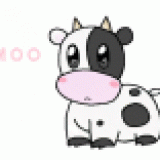Know so little... have so much to learn.
-
hagios17
19 years agoI was introduced to the art of poetry two years ago, in the tenth grade, at high school. The first year, I was uninterested. This year, I have become absolutely infatuated with it, but unfortunately, even though I’ve grown to love the art, I hardly understand its techniques, due to the vagueness of an English schoolteacher. And on top of this, I have a poetry exam in a couple days. So if it’s not too much too ask, and I plead for sympathy, please, please could you explain these techniques to me. I need to understand these techniques, not only for my up-coming exam, but also in general life.
(A) I have submitted the vagueness of my English schoolteacher in the form of a poetry analysis. (I have also submitted the vagueness of my English teacher toward short stories in the form of an analysis)
(B) If you think I’m trying to get your help only so I can pass my English exam, your wrong, and I’ll prove it. I’ve also submitted two of my very own, personal, poems.
-----------------------------
(A) ANALYSIS
-----------------------------
STANDARDISED POEM ANALYSIS
-----------------------------
1) What kind of poem is it? (Is it a lyric, sonnet, narrative poem, etc.?)
2) In what form is the poem written? (How are the lines arranged? Are there regular stanzas?)
3) What does it mean? (Is the meaning communicated literally, symbolically and or metaphorically?)
4) What is the poet’s intention in writing the poem? (This will lead you to an understanding of the theme.)
5) What is the overall mood? (What poetic devices help to establish the mood? Does the mood change? – Metaphor, simile and alliteration.)
6) How does the poet feel about the subject of the poem? (Does his attitude remain constant?)
7) What is the tone? (Is it ironic, satirical, bitter, etc.?)
8) What emotions does the poem arouse in you? (Is the poem overly sentimental? –too many thoughts expressed in words?)
9) What techniques have been used?
9.1) Diction: Is it evocative and appropriate? Have you explored the connotations of the words?
9.2) Imagery: Focus on similes, metaphors and personification.
9.3) Sound devices: How do these support the meaning? (Alliteration, assonance, onomatopoeia, rhyme.)
9.4) Rhythm: Notice punctuation and enjambed lines.
9.5) Rhyme: IS there a regular rhyme scheme? (abbacddceffe, ababcdcdefef, etc.)
-----------------------------
-----------------------------
STANDARDISED SHORT STORY ANALYSIS
-----------------------------
THE SHORT STORY: Short stories must attract interest from the beginning to the end. There is seldom room for an intricate build-up of plot and character. There is room for only one crisis or climax and this frequency occurs at the end … the charm of this genre lies in its infinite variety. === K. Vice
-----------------------------
SETTING
-----------------------------
a) Where is the story set? (Place): Wild West, Spain, hotel; how do you know this? Are there any clues?
b) When did it occur (time): World War II, 1950, 2050;
c) Over what period of time (time span): one night, ten years, fifty years.
-----------------------------
CHARACTERS (No animals)
-----------------------------
a) List them in order of importance; short notes on each one.
b) Name the protagonists/antagonists.
-----------------------------
POINT OF VIEW
-----------------------------
a) Is this story told from the point of view of an omniscient narrator, i.e. one who can see into the minds of the characters/foresee what will happen; or
b) Is it told in the first person? or
c) Is it told through one/more of the characters.
d) What is the advantage of the chosen method?
e) Would another method have been better? Reasons?
-----------------------------
STRUCTURE
-----------------------------
a) Introduction: What sort of introduction? How effective
b) Development: How does action develop?
c) Denouement: How does it end? How is the matter solved? * Give a general comment on the suitability of structure for the particular story.
d) What is the advantage of the chosen method?
e) Would another method have been better? Reasons?
-----------------------------
STYLE
-----------------------------
a) This is the way it is written. This includes a comment on appropriateness of vocabulary/imagery/sentence structure: (varied to suit changes in story)/economy of words/methods of building up suspense; etc.
-----------------------------
THEME
-----------------------------
a) The basic abstract idea in the story, i.e. poverty; courage. * Not to be confused with SUBJECT/what happens to him or her.
b) The author’s intention? Merely to amuse? Teach a lesson?
c) How well does the author succeed?
-----------------------------
FEELING
-----------------------------
a) What feeling/s about the theme does the author reveal?
-----------------------------
TONE
-----------------------------
a) Is the tone IRONIC? HUMOROUS? NOSTOLGIC? Any changes?
-----------------------------
OVERALL IMPRESSION
-----------------------------
a) You do not have to like the story, but you must be able to recognize its ‘good’ features; its weaknesses and decide whether, as a whole, it succeeds or not.
-----------------------------
-----------------------------
(B) TWO OF MY POEMS
-----------------------------
Independent “MEâ€, bondage the fallacy
-----------------------------
Harking back to ancient heresy.
Independence is the truth
And you say, I see
The truth, my fairies tooth.
Transgression!
No such thing as hopeless sin
Condemnation!
To those convicted by their sin
The truth you say,
is inside of me.
Oh happy day.
I am the key-
Christ! it seams
He is a dream.
-----------------------------
Figure out your own
-----------------------------
Stand fast in glib contradiction,
Relish futile gratuity.
Die! in Suffocation,
Hold to your stupidity.
Under great delusion,
To see no reason?
Ever thirsting confusion,
Sowed in a wrong season?
I be the liar? Does not a liar
Ignore fair context, as you do?
I be the liar? Does not a liar
See every scripture a contest, as you do?
Let us not figure out each other’s salvation,
When it is, God’s jurisdiction. -
.K.i.T.t.Y.
19 years agohey, whens the exam
and btw there are some pretty good posts in this topic area that talks about the types of poetry, u mite pick stuff up from there. when i have time ill go through all the questions and ill see what i no..
sorry im not too much help now. -
Gary Jurechka
19 years agoFor a variety of info, including different forms and definitions as well as various personal writing habits and much more, check out NOTES ON WRITING POETRY (though quite lengthy-it is worth sifting through).It contains a wealth of information from some of the most prestigious and knowledgable poets on this site.And feel free to add any personal comments.
Peace, Poetry, & Power,
Gary Jurechka


